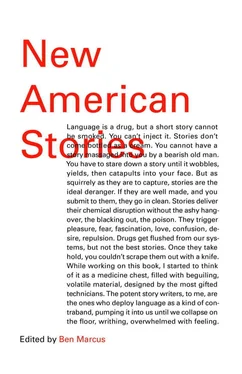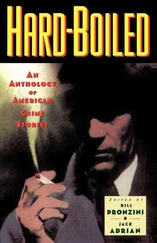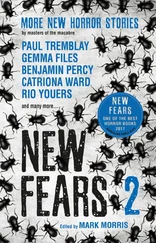Baiyue was sitting looking at the water. “This is the first time I’ve been to the beach,” she said.
“The ocean is so big, isn’t it.”
Baiyue nodded, scuffing at the white sand. “People always say that, but you don’t know until you see it.”
Jieling said, “Yeah.” Funny, she had lived here for months. Baiyue had lived here more than a year. And they had never come to the beach. The beach was beautiful.
“I feel sorry for Mr. Wei,” Baiyue said.
“You do?” Jieling said. “Do you think he really had a daughter who died?”
“Maybe,” Baiyue said. “A lot of people died.”
“My father died,” Jieling said.
Baiyue looked at her, a quick little sideways look, then back out at the ocean. “My mother died,” she said.
Jieling was surprised. She had never known that Baiyue’s mother was dead. They had talked about so much, but never about that. She put her arm around Baiyue’s waist, and they sat for a while.
“I feel bad in a way,” Baiyue said.
“How come?” Jieling said.
“Because we had to steal capital to fight New Life. That makes us capitalists.”
Jieling shrugged.
“I wish it was like when they fought the revolution,” Baiyue said. “Things were a lot more simple.”
“Yeah,” Jieling said, “and they were poor and a lot of them died.”
“I know,” Baiyue sighed.
Jieling knew what she meant. It would be nice to…to be sure what was right and what was wrong. Although not if it made you like Mr. Wei.
Poor Mr. Wei. Had his daughter really died?
“Hey,” Jieling said, “I’ve got to make a call. Wait right here.” She walked a little down the beach. It was windy and she turned her back to protect the cell phone, like someone lighting a match. “Hello,” she said, “hello, Mama, it’s me. Jieling.”
THIS APPOINTMENT OCCURS IN THE PAST by Sam Lipsyte
Davis called, told me he was dying.
He said his case was — here was the essence of Davis — time sensitive.
“Come visit,” he said. “Bid farewell to the ragged rider.”
“You?” I said. “The cigarette hater? That’s just wrongness.”
“Nonetheless, brother, come.”
“Who was that?” said Ondine, my ex-mother-in-law. I kissed her cream-goldened shoulder, slid out of bed.
“A sick friend. I’ve known him twenty years, more, since college. I might have to leave town for a while.”
“No,” said Ondine. “You’re leaving town for good. The occupation ends today. It’s been calamity for us, for the region. Go to your friend.”
“He’s not really my friend.”
“All the more reason to go to him,” said Ondine. “Jesus would be in Pennsylvania by now.”
—
Ypsilanti was easy to leave. I wasn’t from there. I’d just landed there. The Michigan Eviscerations had begun in Manhattan. Martha was a junior at NYU, heiress to a fuel-injection fortune. I was the cheeky barista who kept penciling my phone number on her latte’s heat sleeve. Cheeky and, I should add, quite hairy. Martha finally dialed the smudged figures on the corrugated cuff, cavorted in my belly fur. The woman never exhibited any qualms about our economic divide. After all, she’d remind me, I was a Jew. One day I’d just quit mucking around with burlap sacks of Guatemalan Sunrise and start brewing moolah.
“You can’t help it,” she said. “It’s a genetic thing. You weren’t allowed to own land in the Middle Ages.”
I wasn’t allowed to own land in Michigan either. We got married, but her folks bought the Ann Arbor house in her name. Martha enrolled for a master’s degree at the university. She demanded that I concoct a passion she could bankroll, a “doable dream.” What would it be? Poetry journal? Microlabel for the new jam rock? Nanobatch raki boutique? I mulled over these and other notions but mostly focused on my favored pursuit: grilling premium meats. I grilled grass-fed beef, saddles of rabbit, bison, organic elk. My mulled projects moldered. I’d always pictured myself the genius in the journal, on the label, not running the damn things. Moreover, wasn’t there bookkeeping involved, basic math? No matter what Martha believed about my inherited numerical wizardry honed on the twisty streets of Antwerp, or maybe Münster, I could barely count.
I grilled until the grilling season ended. Around the time the first shipment of Danish birch arrived for my new curing shed, Martha kicked me to what in this municipality wasn’t quite a curb. She’d met an equally hirsute Scot from the engineering school. His name happened to be Scott, and his people had the twisty brain too. Besides, our sex life was a wreck. We were down to those resentful tugs and frigs. She said the stench of burnt meat put her off. I figured it was also the weight I’d put on, the perpetual slick of cook grease on my chest beneath my loose kimono.
Ondine, an old beauty with hair the color of metallic marmalade, was historically attuned to her daughter’s fecklessness. She took pity, rented me a unit in a shingle-stripped Victorian she owned in Ypsilanti, let me slide on the rent until I found a job. I never did, but she seemed satisfied to visit a few times a week for my attentions. She called my style of lovemaking “poignant.”
Still, even before Davis called, I could tell she was getting bored.
“I’m getting bored,” she said.
It came to her suddenly, unbidden, the way it might strike you that you hadn’t gone candlepin bowling or eaten smoked oysters in years.
“You bore the piss out of me,” she said.
I stood, started to dress.
Ondine reached out, pinched my ass fuzz.
“Ouch.”
“Don’t be so sensitive. Lots of things bore me. Things I love. My husband. My house. My daughter. My Native American pottery collection. It’s not an insult.”
—
But if not an insult, it was a signal. Now, weeks later, I headed east in one of Ondine’s several Mazdas, a parting gift, along with a generous cash severance and a few keepsake snapshots of her in aspects of the huntress.
The dashboard robot in the Mazda goaded. Beneath its officious tones I sensed confusion, a geopositional wound. Had some caustic robot daddy made it feel directionless? Meanwhile, the comics on the satellite radio joked about their dainty white cocks. Such candor was supposed to prevent the race war.
My neck ached, and I bought an ice pack, wedged it up against my headrest. My tongue was a mess. I still tasted Ondine. Deep in Pennsylvania I ate a coq au vin quesadilla. It’s what Jesus would have ordered, and it was delicious.
I had to drive fast, before I ate too much road food.
The ragged rider, Davis had called himself, but I couldn’t parse the phrase. I was naturally undetective.
Clues clenched me up.
—
I’d booked a tiny room in the Hudson Lux in New York City, high up and hushed, a loneliness box of polished walnut and chrome. You could picture yourself dead of a hanging jackoff in such a room, your necktie living up to its name, your lubricated fingers curled stiff near your hips. I stretched out on the narrow bed, decided not to picture this. It wasn’t the kind of thing I figured I’d ever try. Aficionados cited the bliss spasm caused by air loss, but I wondered if most got orgasmic on the gamble. Anyway, everything in my life was a gamble, a wager that somebody would see to my needs. Was I secretly here because I thought Davis would somehow fit the bill even though he was sick? If so, who was sicker?
Now I shut my eyes, and Davis loped into view. He stood in an orchard of pomegranates, his legs greaved in a low, personal mist. Tall, homely Davis, with his hamster-fluff hair and granny specs.
Читать дальше










![Женя Джентбаев - neo futura [stories]](/books/692472/zhenya-dzhentbaev-neo-futura-stories-thumb.webp)

